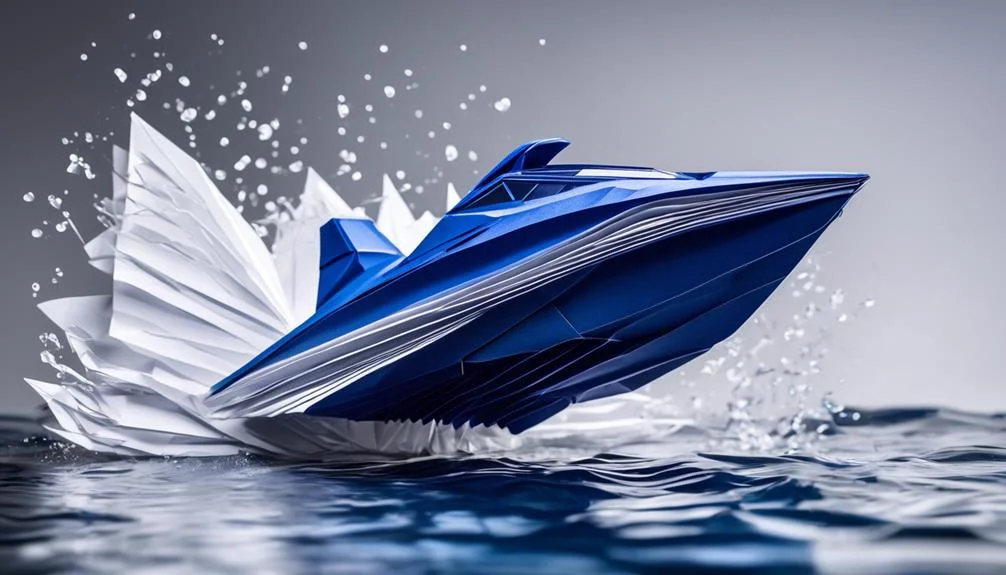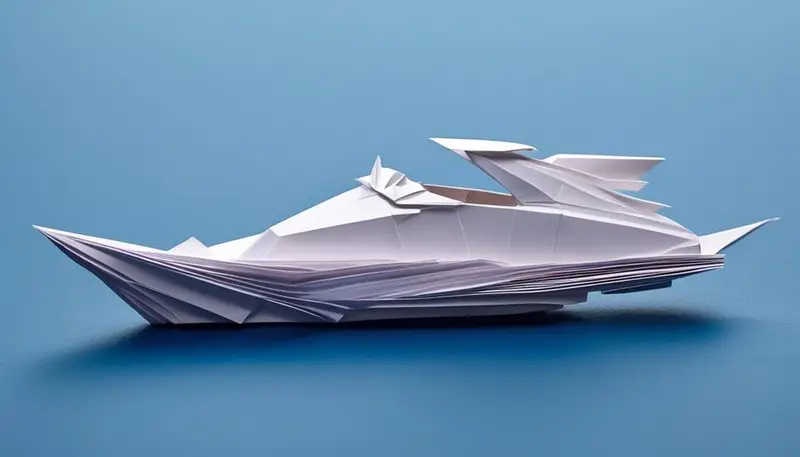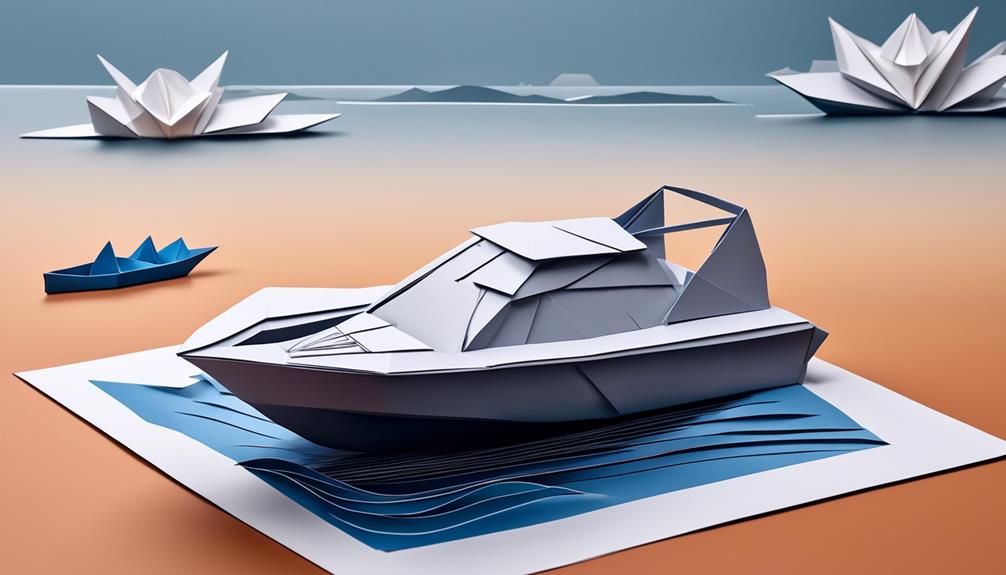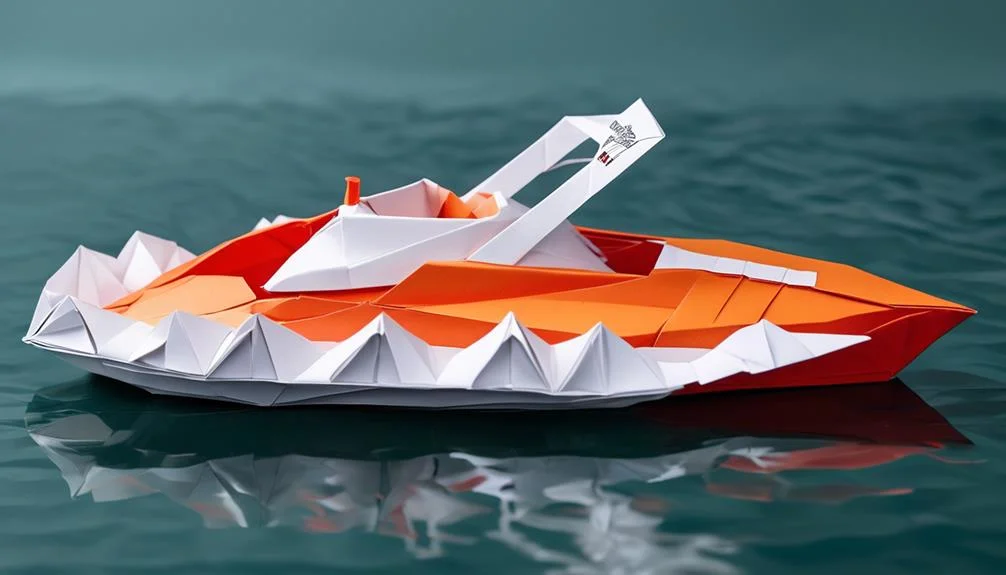Takeaways:
- Yamaha jet boats offer impressive speed, acceleration, and maneuverability, making them ideal for thrilling and dynamic boating experiences.
- The jet propulsion system of Yamaha jet boats provides exceptional steering precision and allows for quick directional changes while maintaining control, enhancing safety and agility.
- Stability at high speeds can be a concern with Yamaha jet boats, and operators must understand and respect the boat’s limits to ensure safety.
- Yamaha jet boats are fuel-efficient, cost-effective, and environmentally friendly, consuming up to 50% less fuel than propeller-driven boats and reducing the carbon footprint.
| Pros of Yamaha Jet Boats | Cons of Yamaha Jet Boats |
|---|---|
| Safety Features | Vulnerability to Debris |
| Shallow Water Navigation | Cavitation Issues |
| Reduced Maintenance Requirements | Low-Speed Maneuverability Challenges |
| Simple Operation Mechanism | Handling in Rough Waters |
| Neutral Low-Speed Handling | Increased Maintenance in Salt Water |
| High-Speed Performance | Potential for Lower Resale Value |
| Spacious and Versatile Design | Noise Levels |
| Innovative Technologies | Fuel Efficiency Concerns |
| Environmentally Friendly Operation | Limited Engine Lifespan |
| Brand Reputation and Reliability | Initial Cost and Value Perception |
Pros of Yamaha Jet Boats
- Safety Features: Yamaha jet boats are designed without exposed propellers, which enhances safety during water activities. This design minimizes the risk of injuries while swimming or engaging in water sports near the boat. It’s particularly beneficial for families with children or for those who frequently participate in water-based activities.
- Shallow Water Navigation: These boats are well-suited for shallow water operations due to the absence of a protruding lower unit. This capability allows them to navigate in areas where traditional boats with propellers cannot, such as near beaches or in shallow bays, expanding the range of exploration and activities.
- Reduced Maintenance Requirements: Yamaha jet boats require less maintenance compared to traditional propeller boats. The lack of a lower unit and gearbox simplifies the overall mechanical structure, resulting in fewer parts that need regular servicing or repairs, which can lead to cost savings and less downtime.
- Simple Operation Mechanism: The propulsion system of Yamaha jet boats is straightforward, involving a direct shaft driving the impellers. This simplicity in design translates to an easier learning curve for operators, making these boats particularly appealing to new or casual boaters.
- Neutral Low-Speed Handling: The ability to stay stationary next to a dock in neutral without any movement is a significant advantage. This feature enhances safety and convenience during boarding and disembarking, particularly in busy or confined docking areas.
- High-Speed Performance: Yamaha jet boats are known for their powerful and efficient performance. They typically offer quick acceleration, higher top speeds, and agile maneuverability, making them a thrilling choice for enthusiasts seeking an exhilarating boating experience.
- Spacious and Versatile Design: These boats often feature spacious seating arrangements and versatile layouts, making them ideal for comfortable cruising with family and friends. This design aspect caters to both leisure and entertainment needs, enhancing the overall boating experience.
- Innovative Technologies: Yamaha jet boats incorporate advanced technologies and modern design elements. These innovations can include intuitive control systems, state-of-the-art navigation aids, and entertainment features, all of which contribute to a more enjoyable and convenient boating experience.
- Environmentally Friendly Operation: The jet propulsion system, by avoiding the use of a traditional propeller, can be more environmentally friendly. It minimizes disturbance to marine life and reduces the risk of damaging underwater habitats, making these boats a more sustainable choice for eco-conscious boaters.
- Brand Reputation and Reliability: Yamaha is a well-established brand known for producing high-quality and reliable marine engines and boats. This reputation provides a sense of trust and confidence for buyers, ensuring that they are investing in a product with proven performance and durability.
Cons of Yamaha Jet Boats
- Vulnerability to Debris: The jet propulsion system can suck up weeds, stones, and other debris, potentially leading to clogs or damage. This issue is particularly prevalent in waters with high debris content, requiring frequent checks and potential cleaning of the intake system.
- Cavitation Issues: Yamaha jet boats may experience more cavitation compared to propeller boats. Cavitation can reduce propulsion efficiency and potentially cause wear and damage to the impeller and other components, requiring attention and maintenance.
- Low-Speed Maneuverability Challenges: Some users report challenges in maneuvering these boats at low speeds, especially around docks or in tight spaces. This can make docking more difficult and may require more skill and practice to master.
- Handling in Rough Waters: Yamaha jet boats may not perform as well in rough waters as some other brands. Their design, while advantageous in calm and shallow waters, can lead to a less stable and comfortable ride in choppy conditions.
- Increased Maintenance in Salt Water: After use in salt water, these boats require thorough flushing to prevent corrosion and salt buildup. This additional maintenance step is essential to ensure the longevity and proper functioning of the boat’s systems.
- Potential for Lower Resale Value: Jet boats, in general, may have a lower resale value compared to traditional boats. This can be a consideration for buyers who plan to sell their boat in the future, as they might not recoup as much of their initial investment.
- Noise Levels: Jet boats can be noisier than traditional propeller boats. The high-speed jet of water exiting the boat can create a significant amount of noise, which might be a concern for those seeking a quieter boating experience.
- Fuel Efficiency Concerns: While Yamaha jet boats offer powerful performance, they may not be as fuel-efficient as some other types of boats. The high-speed operation and the nature of the jet propulsion system can lead to greater fuel consumption, impacting running costs.
- Limited Engine Lifespan: Yamaha outboard engines are robust, but they may have a shorter lifespan compared to some other brands or types of engines. While they can last up to 2,000 hours, the average is around 1,500 hours, even with regular servicing, which could influence long-term ownership costs.
- Initial Cost and Value Perception: The initial purchase cost of Yamaha jet boats can be high, and some potential buyers might question the value proposition compared to other types of boats. The cost-benefit analysis may vary depending on individual usage patterns and preferences.
Yamaha Jet Boat Speed

When it comes to velocity on the water, Yamaha Jet Boats are renowned for their impressive speed and rapid acceleration capabilities. These sleek vessels are engineered to provide high-speed thrills, catering to boaters who crave a dynamic and exhilarating experience.
The design of Yamaha Jet Boats allows them to quickly reach higher top speeds, making them a popular choice for speed enthusiasts.
Apart from their ability to sprint across the water’s surface, these jet boats are distinguishable by their exceptional maneuverability. The absence of external propellers enables them to navigate through tight spaces with remarkable agility. Sharp turns and intricate handling are executed with ease, allowing for a more engaging and responsive boating adventure.
Furthermore, Yamaha Jet Boats offer a notable advantage in terms of fuel efficiency. Their innovative jet propulsion system is designed to consume less fuel than traditional propeller-driven boats. This efficiency does not only benefit the environment by reducing fuel consumption but also provides economic value to the owner by cutting down on operational costs.
Yamaha’s commitment to combining speed with efficiency defines their jet boats as a top-tier option for watercraft enthusiasts.
Maneuverability and Handling

When discussing the maneuverability and handling of Yamaha jet boats, the jet propulsion system is a pivotal feature that provides exceptional steering precision.
The design of the hull also plays a significant role in how these boats handle, particularly when making sharp turns or navigating in congested waters.
However, potential concerns arise regarding the stability at high speeds, which necessitates a closer examination of their performance under such conditions.
Jet Propulsion Steering Precision
Jet boats, with their advanced jet propulsion systems, offer heightened maneuverability that translates into precise and responsive handling on the water. This superior steering precision is evident as they navigate through constricted spaces and execute sharp turns. The ability to swiftly alter course not only enhances the boating experience but also significantly diminishes the likelihood of accidents, fostering a more secure environment for both operators and nearby vessels.
The standout feature of jet boats is their agility, enabling quick directional changes while maintaining control and power. This is particularly advantageous in densely populated marinas where avoiding obstacles is crucial. Yamaha jet boats, leveraging this technology, provide boaters with an unmatched level of command, ensuring safety and enjoyment in various boating scenarios.
Hull Design Impact
Building on the agility afforded by their advanced jet propulsion systems, Yamaha jet boats also benefit from a hull design that further enhances maneuverability and handling on the water. These crafts exhibit sportscar-like responsiveness, with instant throttle reaction allowing for precise control. The elimination of lower units and prop shafts means these boats can glide through minimal waters just inches deep, offering less drag and the flexibility to explore shallower environments with ease.
However, the specialized jet drives can present a learning curve for new operators, as handling characteristics differ notably from traditional propeller-driven boats. Additionally, in conditions of low speed or strong winds, Yamaha jet boats may require more attention to maintain a straight course, highlighting a nuanced balance between high agility and stability.
High-Speed Stability Concerns
Yamaha’s jet boat lineup, while celebrated for its agility, often raises concerns regarding high-speed stability due to its distinctive handling and maneuverability traits. The jet propulsion system, which differs from traditional propeller-driven boats, can exhibit unique responses during high-speed maneuvers. New operators may find the experience requires a period of acclimatization.
Key points include:
- The maneuverability of Yamaha jet boats, while advantageous at low speeds, may lead to stability issues when traveling at higher velocities.
- Handling characteristics at high speeds can be unpredictable for those unfamiliar with jet boats, demanding increased skill and attentiveness.
- Stability can be compromised in certain water conditions, making it essential for operators to understand and respect the boat’s limits to ensure safety.
Shallow Water Navigation
Navigating shallow waters becomes a seamless experience with the advanced design of Yamaha jet boats. These boats are engineered to minimize the risk of running aground due to their shallow draft and innovative jet propulsion system.
The shallow draft of Yamaha jet boats is a key feature that allows these vessels to operate effectively in environments where traditional boats may struggle. It also helps prevent damage to their outboard motors from underwater obstacles. This shallow draft enables Yamaha jet boats to glide over areas with minimal depth without the same concerns as propeller-driven boats.
The unique jet propulsion system of Yamaha jet boats offers a significant advantage in shallow water navigation. Unlike propeller-driven boats that may require deeper water to avoid hitting the bottom, jet boats can glide over areas with minimal depth without the same concerns. This capability not only enhances safety but also allows access to secluded spots, making Yamaha jet boats highly versatile for a range of water-based activities.
Shallow Water Navigation is a standout benefit that underscores the adaptability of Yamaha jet boats. It empowers boaters to explore coves, riverbanks, and coastlines with confidence. In essence, the combination of a shallow draft and jet propulsion broadens the operational scope of these boats, solidifying their appeal to those who value the freedom to navigate through a variety of aquatic landscapes.
Fuel Efficiency Considerations

While shallow water navigation is a standout feature of Yamaha jet boats, their fuel efficiency is another aspect where they excel, consuming up to 50% less fuel than traditional propeller-driven boats. This significant reduction in fuel consumption is not only easy on the wallet but also beneficial for the environment, making Yamaha jet boats an attractive option for eco-conscious boaters.
The superior fuel efficiency of Yamaha jet boats can be attributed to several factors:
- The direct propulsion system minimizes energy loss and ensures that power is transferred more effectively.
- Efficient fuel consumption translates into longer outings and more playtime on the water without the need for frequent refueling.
- Yamaha’s commitment to eco-friendly boating experiences is reinforced by the reduced fuel usage, which results in a lower carbon footprint.
Fuel efficiency remains a critical consideration for any boat owner. Yamaha jet boats offer a cost-effective and environmentally friendly choice, allowing boaters to enjoy extended time on the water with fewer concerns about the impact on their budget or the environment.
This advantage, coupled with the innovative design of Yamaha jet boats, positions them as a smart selection for both recreational and practical boating enthusiasts.
Maintenance and Upkeep

Turning our attention to maintenance and upkeep, it’s essential to evaluate the ongoing service costs that Yamaha jet boat owners can anticipate.
Factors such as the necessity for regular cleaning and preservation play a crucial role in maintaining the aesthetic and functional aspects of these vessels. Additionally, the longevity and reliability of Yamaha jet boats are closely tied to the adherence to a disciplined maintenance schedule.
Routine Service Costs
Understanding the routine service costs for Yamaha jet boats is essential, as these include necessary procedures such as oil changes, spark plug replacements, and winterization to maintain engine performance and extend the vessel’s life. These costs are inherent to the ownership of any marine craft but are particularly important in the context of Yamaha’s unique propulsion system.
Key considerations for routine service costs include:
- Regular oil changes and spark plug replacements to ensure efficient engine performance.
- Inspection and maintenance of the jet propulsion system, which is critical for preventing debris-related issues.
- Potential savings from features designed for easier maintenance, such as naturally draining motors that may eliminate the need for winterization.
While these services are essential, they may contribute to higher overall maintenance costs when compared to traditional boats.
Cleaning and Preservation
Regular cleaning and diligent maintenance are cornerstone practices in safeguarding the performance and extending the service life of Yamaha jet boats. It’s crucial to use mild, non-abrasive cleaners to maintain the aesthetic condition of the boat’s surfaces. This careful approach prevents damage to the finish and preserves the vessel’s appearance.
Additionally, protecting the boat from the harsh elements through proper storage and covering when not in use is imperative to prolong its service life.
Conducting routine engine checks is equally important. Flushing out the jet drive system and inspecting for debris are essential steps in maintaining optimal performance. Adhering to the maintenance schedule and guidelines recommended by Yamaha ensures that the jet boat continues to operate smoothly and safely, providing owners with peace of mind and a reliable boating experience.
Longevity and Reliability
While Yamaha jet boats are engineered for durability, their longevity hinges on consistent maintenance and proper upkeep. These vessels are designed to provide reliable performance over time, but this is directly tied to how well they are cared for. Routine maintenance, such as oil changes and spark plug replacements, is crucial to preserve the boat’s high-performance capabilities.
However, there are a few key points to consider when it comes to the maintenance and reliability of Yamaha jet boats:
- The jet propulsion system may require specialized service, which can be less readily available than for traditional outboard motors.
- Higher RPM levels typical of jet boats can accelerate engine wear, emphasizing the need for regular maintenance checks.
- Despite being relatively easy to maintain, the reduced fuel efficiency of jet boats may increase operational costs over time.
Onboard Safety Features

Yamaha jet boats are outfitted with a suite of onboard safety features designed to protect both passengers and marine life. These features include the innovative Clean-Out Port System and an emergency engine shut-off mechanism.
The Clean-Out Port System is a patented feature that allows for easy removal of debris from the jet pumps. This ensures that the engine maintains optimal performance and reduces the risk of breakdowns that could jeopardize passenger safety.
In addition to this, the emergency engine shut-off feature provides immediate stopping power in critical situations, providing an extra layer of protection.
Another significant safety advantage of Yamaha jet boats is the absence of exposed propellers. This design element keeps swimmers and marine life safe from the dangers of sharp, rotating blades that are commonly found in traditional propeller-driven boats.
Furthermore, the intelligently designed swim platform, complete with a ladder, offers a secure area for passengers to board and disembark, minimizing the risk of slips and falls.
Lastly, the careful attention to visibility from the captain’s seat ensures that the operator has a clear view of the surroundings. This visibility is pivotal in avoiding collisions and navigating safely through various water conditions.
Resale Value Implications
Considering the specialized nature of their design, jet boats, including those manufactured by Yamaha, often face lower resale values when compared to traditional propeller-driven vessels. This depreciation can be attributed to various factors that stem from the unique characteristics of jet boats, which may not appeal to a broad audience.
The resale value of Yamaha jet boats, like other jet-powered vessels, is influenced by:
- Specialization and Buyer Base: The high-performance and sporty design of jet boats caters to a niche market, potentially limiting the number of interested buyers when it’s time to resell.
- Service and Maintenance: The scarcity of technicians skilled in jet boat maintenance can be a deterrent for second-hand buyers, who may prefer a boat with more accessible and affordable service options.
- Market Demand Variability: Regional preferences for boating styles can greatly influence the demand and thus resale value of jet boats. In areas where jet boats are less popular, owners may find it challenging to sell at a desirable price.
These factors collectively contribute to the lower resale value of Yamaha jet boats. Current and prospective owners should consider these implications when purchasing a jet boat and strategize accordingly to mitigate potential losses upon resale.
Conclusion
In conclusion, Yamaha Jet Boats are celebrated for their rapid acceleration and agile handling, which contribute to a dynamic boating experience.
Their design allows for proficient maneuvering in various aquatic environments, including shallow waters.
Fuel efficiency, maintenance, and onboard safety are important considerations for potential owners.
While the initial investment may be significant, the strong resale value of these boats can mitigate long-term financial concerns, making them a worthy consideration for enthusiasts seeking a high-performance watercraft.